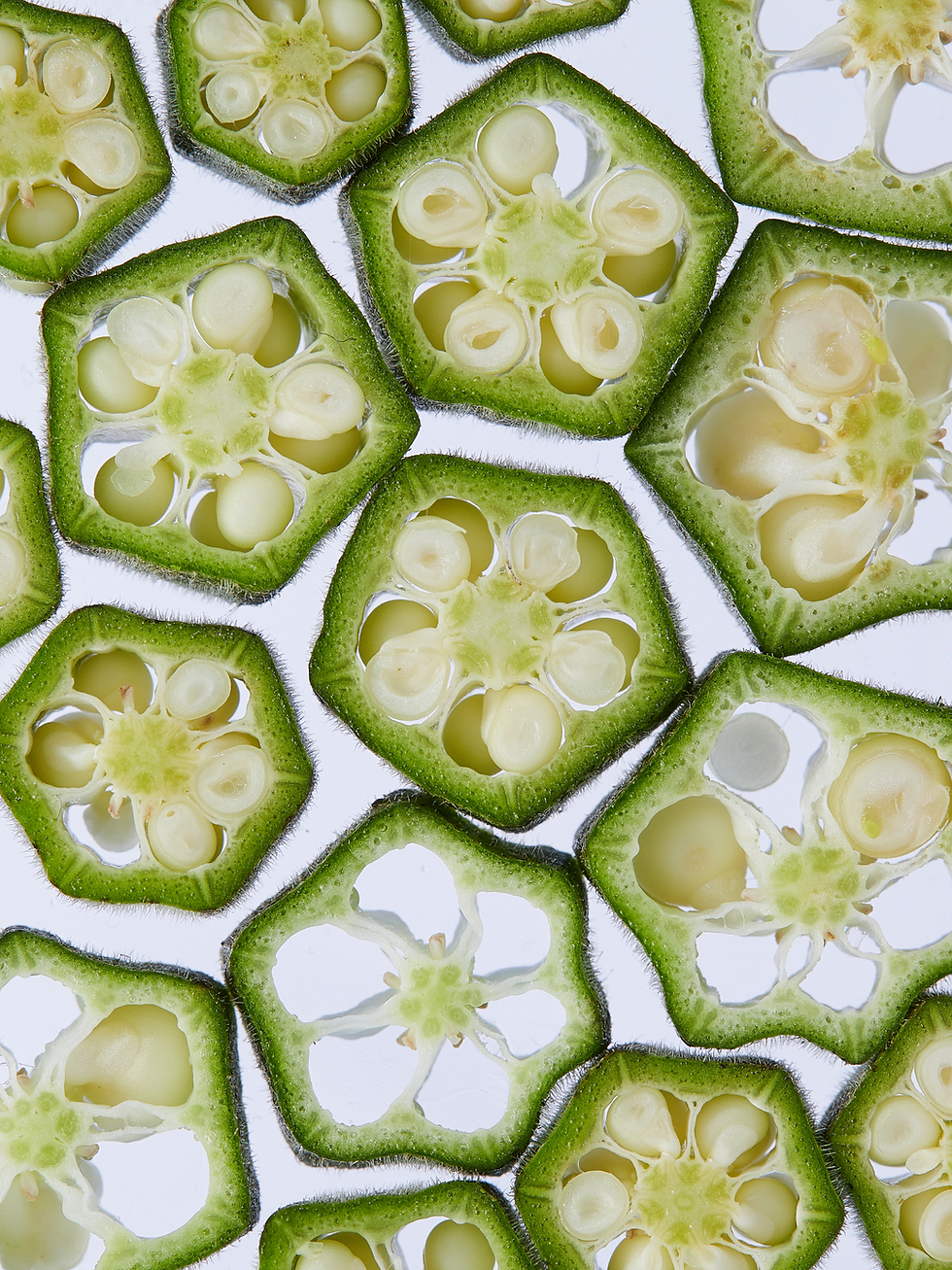Elderberry Syrup: Accessible Plant Medicine & Everyday Immune Support
- Marisa Colon
- Apr 27
- 7 min read
Updated: Apr 28
Before elderberry was a buzzword, before it showed up on pharmacy shelves next to overpriced supplements with no soul, our people were already holding the knowledge.

Our grandmothers knew. Their grandmothers knew. From the Caribbean to the Carolinas, from the coastlines to the cornfields, our people have always used what the Earth as given us.
Elderberry has been in the medicinal bundle for generations. In this piece, we’re going to walk you through why elderberry deserves a place in your kitchen and your apothecary, how to make it yourself, and how this simple, potent plant is a way to reconnect with a legacy of wellness that predates the healthcare system by millennia.
In every drop of elderberry syrup, there’s a story of resilience and wisdom, rooted in the earth and in our culture.
Elderberries have long been used in traditional plant medicine to support immunity, reduce inflammation, and help the body bounce back faster from colds and viruses. Science is only now catching up to what our people already practiced:
Antiviral & Antibacterial: Elderberry has been shown to inhibit the replication of viruses and support respiratory health.
High in Antioxidants: Rich in anthocyanins, elderberries help the body fight oxidative stress and inflammation.
Immune Support: Regular use is linked to reduced severity and duration of cold and flu symptoms.
Our ancestors didn’t need clinical trials—they had lived experience and results. Still, if you’re looking for studies, research published in the Journal of Functional Foods and Phytochemistry backs up the elderberry’s powerful role in immune support.
Why Make It Yourself? (It’s Not Just About the Cost)

Yes, elderberry syrup can be expensive. Yes, making it at home is cheaper. But it’s also better—because you know what’s going in it. And because it means you’re learning and living a tradition that too many of us were told to forget.
Making elderberry syrup yourself offers:
Sovereignty over your health practices
Connection to a lineage of plant medicine
Affordability with quality you can trust
Freedom from sugar-laden or preservative-heavy store-bought versions
This isn’t about “DIY” as a trend. It’s about access.
How to Make Elderberry Syrup at Home
A Restorative Approach to Herbal Immunity

All of these ingredients are rooted in tradition—plants and spices our people have leaned on for centuries.
Ingredients:
¾ cup dried black elderberries (or 1½ cups fresh or frozen)
3 cups spring or filtered water
1 tablespoon fresh grated ginger (antiviral, warming, good for digestion)
1 teaspoon cinnamon (antimicrobial and circulatory support)
½ teaspoon whole cloves or 4-6 individual cloves (antiseptic, antiviral)
1 cup raw honey (local if possible, or substitute maple syrup for vegan option)
Optional additions: A strip of orange peel, star anise, or a pinch of turmeric—each adds its own healing dimension.
Your Basic B Elderberry Syrup!
Combine elderberries, water, ginger, cinnamon, and cloves in a pot.
Bring to a low boil, then reduce heat and simmer uncovered for 30–40 minutes, until the liquid has reduced by about half.
Remove from heat and let cool enough to safely handle.
Mash the berries with the back of a spoon or potato masher to release remaining juices.
Strain through a fine mesh sieve, cheesecloth, or nut milk bag into a glass bowl.
Once the liquid is warm but no longer hot, stir in the honey.
Transfer to a sterilized glass jar or bottle. Store in the refrigerator for up to 3 months.
Bonus Ingredients for Postpartum Syrup:
Red Raspberry Leaf (Rubus idaeus) – Still a go-to for postpartum recovery. Red raspberry leaf strengthens the uterus, promotes healing, and supports lactation, making it a valuable addition for postpartum care. This herb is deeply rooted in both Indigenous and Western herbal traditions.
Nettle (Urtica dioica) – A nourishing herb rich in iron, calcium, and vitamins, nettle helps replenish nutrients lost during childbirth and supports lactation. It’s widely used in Black and Indigenous communities to tone the reproductive system and enhance postpartum recovery.
Holy Basil (Ocimum sanctum) – Known for its adaptogenic properties, holy basil helps to manage stress and support hormonal balance, both of which are crucial postpartum. It’s been utilized in Indigenous medicine for centuries, particularly for calming and restoring energy.
Turmeric (Curcuma longa) – This anti-inflammatory root is excellent for reducing postpartum swelling and inflammation. It also supports digestion and overall healing. Widely used in African, Indigenous, and Ayurvedic practices, turmeric has deep roots in medicinal traditions.
Cinnamon (Cinnamomum verum) – With its warming properties, cinnamon aids in digestion and circulation, both important postpartum. It has a long history of use in African and Indigenous healing traditions, supporting the body’s recovery after childbirth.
Ginger (Zingiber officinale) – A potent herb for easing digestive discomfort and reducing inflammation, ginger is perfect for postpartum recovery. Its warming properties also help with circulation and pain relief, making it a versatile addition to the syrup.
Anise Seed (Pimpinella anisum) – Anise supports digestion, reduces bloating, and promotes lactation. It’s often used in both African and Indigenous herbal practices to help calm the digestive system and support nursing mothers.
Rose Hips (Rosa spp.) – High in vitamin C and antioxidants, rose hips are an excellent addition to postpartum syrups. They support immune health and help the body recover from birth. Rose hips have been used for centuries in various healing traditions, especially for their skin and immune-boosting properties.
Hibiscus (Hibiscus sabdariffa) – Hibiscus is known for its high vitamin C content, helping to replenish nutrients lost during childbirth and support skin health. It also has anti-inflammatory properties, which aid in the healing process, and its slightly tart flavor adds a pleasant twist to the syrup.
Lemon Balm (Melissa officinalis) – This calming herb is ideal for managing postpartum anxiety and stress. It soothes the nervous system and can help promote restful sleep, which is essential during the demanding postpartum period.
How to Use It: Rooted in Rhythm, Not Necessarily Routine
This isn’t a prescription. This is practice. Use it as a tonic, not just a treatment.

When and How to Use Elderberry Syrup
Elderberry has long been used to support wellness during the colder months — and not as something we relied on daily, but something we reached for with intention. Elder was a plant spirit our ancestors respected, called upon when the body needed support, when winter winds swept through the village, or when a child began to sniffle.
In that tradition, elderberry syrup is best used at the first sign of illness or when exposure to colds and flu increases. This is not a multivitamin. It’s a seasonal ally.
General Guidelines for Acute Support
Adults: 1 tablespoon every 2–3 hours when sick, or when exposure is high (like during travel or cold/flu season)
Children over 1 year: 1 teaspoon every 2–3 hours when sick*
Stir it into warm tea (not boiling), drizzle over warm porridge, or take straight off the spoon with gratitude.
*Always speak to your child’s pediatric provider before introducing herbs.
Honoring Tradition with Informed Practice
Our ancestors didn’t need clinical trials to know that the plants were healing — but they also didn’t use them casually. Elderberry was medicine, and medicine isn’t taken lightly.
Modern research now affirms what our lineages have long known: elderberry can shorten the duration of colds and flu, and it may support immune function during the early onset of illness. (Zakay-Rones, 2004; Tiralongo, 2016)
But be discerning.
Elderberry is most effective when used acutely, for a few days, not year-round.
Raw or improperly prepared berries can be toxic.
Most importantly, herbs are not a replacement for rest, warmth, nourishment, or proper care.
Learn More from Reputable Sources
Zakay-Rones, Z., Thom, E., Wollan, T., & Wadstein, J. (2004). Randomized study of the efficacy and safety of oral elderberry extract in the treatment of influenza A and B virus infections. Journal of International Medical Research. PubMed Link
Tiralongo, E., Wee, S. S., & Lea, R. A. (2016). Elderberry supplementation reduces cold duration and symptoms in air travelers: a randomized, double-blind placebo-controlled clinical trial. Nutrients. PMC Link
Children’s Health: Elderberry for Kids – Are There Benefits and Is It Safe? Childrens.com
This is how we do it: with reverence for the past and wisdom for the future. Elder was never about popping supplements and chasing viral trends. Elder was about knowing when to listen to your body, when to slow down, and when to return to the earth.
If you’re called to make your own syrup, the recipe is simple, affordable, and empowering — a ritual that connects you back to your roots.
Note: Trust your intuition, always consult with your preferred midwife, herbalist, or healthcare provider prior starting any new supplement, especially for children under 1 year of age.
Nutrients That Work in Harmony
This isn't just about elderberry alone—this is plant synergy. Each ingredient carries ancestral purpose and biochemical benefit, food is medicine.

Key Nutrients in Elderberry Syrup:
Vitamin C: Supports immune system function.
Flavonoids (Anthocyanins): Reduce inflammation and act as antioxidants.
Iron & Potassium: Essential minerals for immune strength and vitality.
Gingerol (from ginger): Anti-inflammatory and digestive support.
Cinnamaldehyde (from cinnamon): Antimicrobial and blood sugar balancing.
Eugenol (from cloves): Powerful antiseptic and anti-inflammatory compound.
This syrup is a small act of resistance. A big act of remembering.
Making elderberry syrup is more than a wellness trend, it’s a reconnection. A way to say we trust the wisdom in our bloodline, and we’re not afraid to learn more. You don’t need a lab coat to validate what your grandmother already knew. But if it feels good to back your practice with evidence, do that too. That, too, is your birthright: to know and to study. Brew your syrup. Learn the plants. And yes, read the studies. You don’t have to choose between them. You get to hold both.
Suggested Research + Sources to Explore:
Here are a few key studies and reputable articles supporting the benefits of elderberry:
Zakay-Rones et al. (2004) – Randomized study on elderberry extract for influenza reliefPubMed – PMID: 15080016
Kong (2020) – A comprehensive review of elderberry and its antiviral propertiesJournal of Functional Foods, Elsevier
Ulbricht et al. (2014) – Elderberry monograph on safety and efficacyNatural Standard Research Collaboration, PubMed
Porter & Bode (2017) – Herbal medicine in community health among Afro-Caribbean populationsJournal of Ethnopharmacology
Lila, M.A. (2004) – Anthocyanins and health benefits of berriesJournal of Biomedicine and Biotechnology



Comments